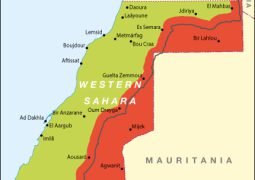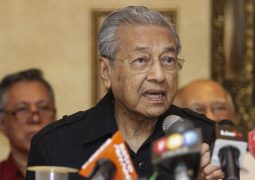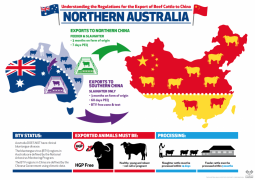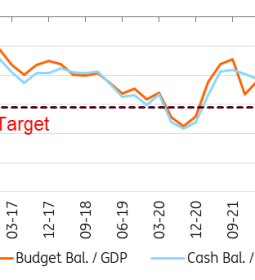Manila runs for non-permanent seat at UN Security Council 2027-2028: Will it ever help!?

Story by Sam Beltran
As the Philippines seeks a UN Security Council seat to address South China Sea tensions, China’s veto power may limit its impact
The Philippines is campaigning for a non-permanent seat on the UN Security Council (UNSC), a bid analysts say could bolster its diplomatic leverage to address maritime tensions in the South China Sea. However, they warn Beijing’s veto power might hinder these efforts.
Making his country’s case before the United Nations General Assembly in New York, Department of Foreign Affairs Secretary Enrique Manalo said on Sunday that the Philippines “has emphasised that the rule of law and the integrity of the multilateral system must prevail amid the current global challenges”.
He also noted that President Ferdinand Marcos, Jnr, affirmed that “multilateralism remains the single viable platform for collective action against transcendent global challenges.”
Do you have questions about the biggest topics and trends from around the world? Get the answers with SCMP Knowledge, our new platform of curated content with explainers, FAQs, analyses and infographics brought to you by our award-winning team.
In September, Manalo announced the Philippines’ intention to seek support for a non-permanent seat on the council for the 2027-2028 term.
“The Philippines is making positive headway in its campaign for the UNSC, secure in our proven track record of being a dependable partner, pathfinder and peacemaker in world affairs, with eight decades of multilateral diplomacy experience as a founding member of the UN and having previously sat in the UNSC four times,” Manalo said.
Without explicitly naming China, Manalo alluded to rising tensions in the South China Sea.
Philippine Foreign Minister Enrique Manalo has spoken about his country’s intention to seek support for a non-permanent seat on the UN Security Council. Photo: Reuters
“Despite irresponsible and dangerous actions against our legitimate activities within our own waters and exclusive economic zone (EEZ), the Philippines remains committed to diplomacy and other peaceful means,” the Philippines’ top diplomat said, adding that the country will abide by the UN Charter and Manila declaration on the peaceful resolution of disputes.
He also rejected narratives portraying the South China Sea as a stage for a “proxy war” between China and the United States.
“We do not accept narratives depicting the South China Sea as a theatre of major power rivalry because they all ignore what is an essential truth: all states in this region have a right to determine their own destiny and secure their own future,” he said.
Non-permanent members of the UN Security Council are elected by the General Assembly for two-year terms, with five seats up for election each year. To win a seat, a candidate country must secure a two-thirds majority of votes from member states. The vote for the 2027-2028 term will be held in mid-2026.
A seat at the table
Observers said securing a seat on the Security Council could give Manila a platform “to advocate for its interests.”
Matteo Piasentini, an analyst with the Italian think tank Geopolitica, said Manila’s bid was consistent with its foreign policy goal of internationalising its maritime disputes with Beijing, “highlighting Manila’s role as a responsible member of the international order, observant of international law, norms, and principles.”
“Additionally, being a member of the Security Council provides a platform for informal consultations and dialogue, which may serve as a useful avenue for the Philippines in pursuing its strategy,” Piasentini said.
Still, observers cautioned that raising issues about tensions in the West Philippine Sea – Manila’s term for the portions of the South China Sea within its exclusive economic zone – may have limited impact due to China‘s status as a permanent member of the UNSC.
Piasentini said if the Philippines secures a seat on the council, China is unlikely to respond strongly as both countries already engage in various multilateral forums. However, he acknowledged that Beijing could use its veto power to block any resolutions Manila might propose concerning disputes in the South China Sea.
“[The Philippines] has to be realistic too, given the structure of the UN Security Council, with five members, including China, enjoying veto powers,” Nathaniel Candelaria, assistant professor at the University of the Philippines’ political science department, told This Week in Asia.
He added that Manila may face other hurdles, given geopolitical disputes in the South China Sea.
China claims most of the South China Sea, based on its “10-dash line,” which overlaps significantly with the Philippines’ EEZ. An international tribunal ruled in favour of the Philippines in 2016, rejecting China’s claims as inconsistent with international law. Beijing rejected the ruling and continues to assert control, leading to frequent maritime confrontations.
Candelaria said Manila’s hopes for winning a seat may “depend on how it packages its candidacy as a non-permanent member”.
In his speech before the General Assembly, Manalo highlighted the Philippines’ contributions across various UN initiatives, saying the country “offers constructive solutions across the spectrum of the work of the United Nations.”
“The Philippines is a trusted partner, innovative pathfinder, and committed peacemaker. We bring experience, depth, and steadfastness in working with the international community to address common global challenges,” he added.
While a seat on the UNSC could elevate the Philippines’ global influence, observers remain sceptical of the body’s capacity to deter Beijing’s actions in the South China Sea.
“Unfortunately, as we’ve seen many times in the history of the body, great powers that possess veto prerogatives aren’t easily deterred by the Council’s operations. For example, it didn’t stop Russia’s invasion of Ukraine, and recently, in 2024, the US vetoed a resolution that aimed at granting Palestine statehood,” Piasentini said.
Candelaria said that China’s permanent membership also prevents the council from deterring its activities in the disputed waterway.
“Even so, the Philippines can still use the UNSC as a platform to raise these issues. Even if the UNSC will not be able to act on it,” he added.
Meanwhile, Piasentini said that Beijing may likely use its veto powers to strike down any resolution that Manila may try to pass regarding the South China Sea, but added that “this may very well be what the Philippines aims for – to show which of the two is acting responsibly for the sake of international peace and stability.”
More Articles from SCMP
Hong Kong gives key companies more time to report critical cybersecurity lapses
Why did Shenzhen’s National Day drone show go ahead but not Hong Kong’s?
The 5 major blind spots pushing the US into conflict with China
This article originally appeared on the South China Morning Post (www.scmp.com), the leading news media reporting on China and Asia.
Copyright (c) 2024. South China Morning Post Publishers Ltd. All rights reserved
- Previous What Is Happening in Region Is ‘Collective Genocide’- Emir Al-Thani
- Next Letter to President Biden and Vice President Harris – 118,000 Have Been Killed in Gaza – 99 Americans volunteers say

















